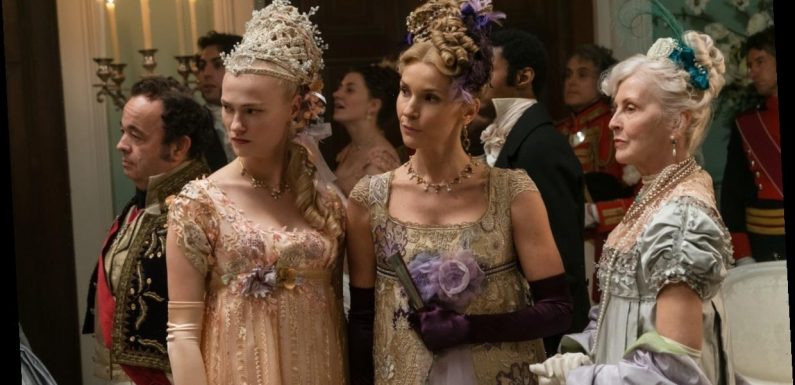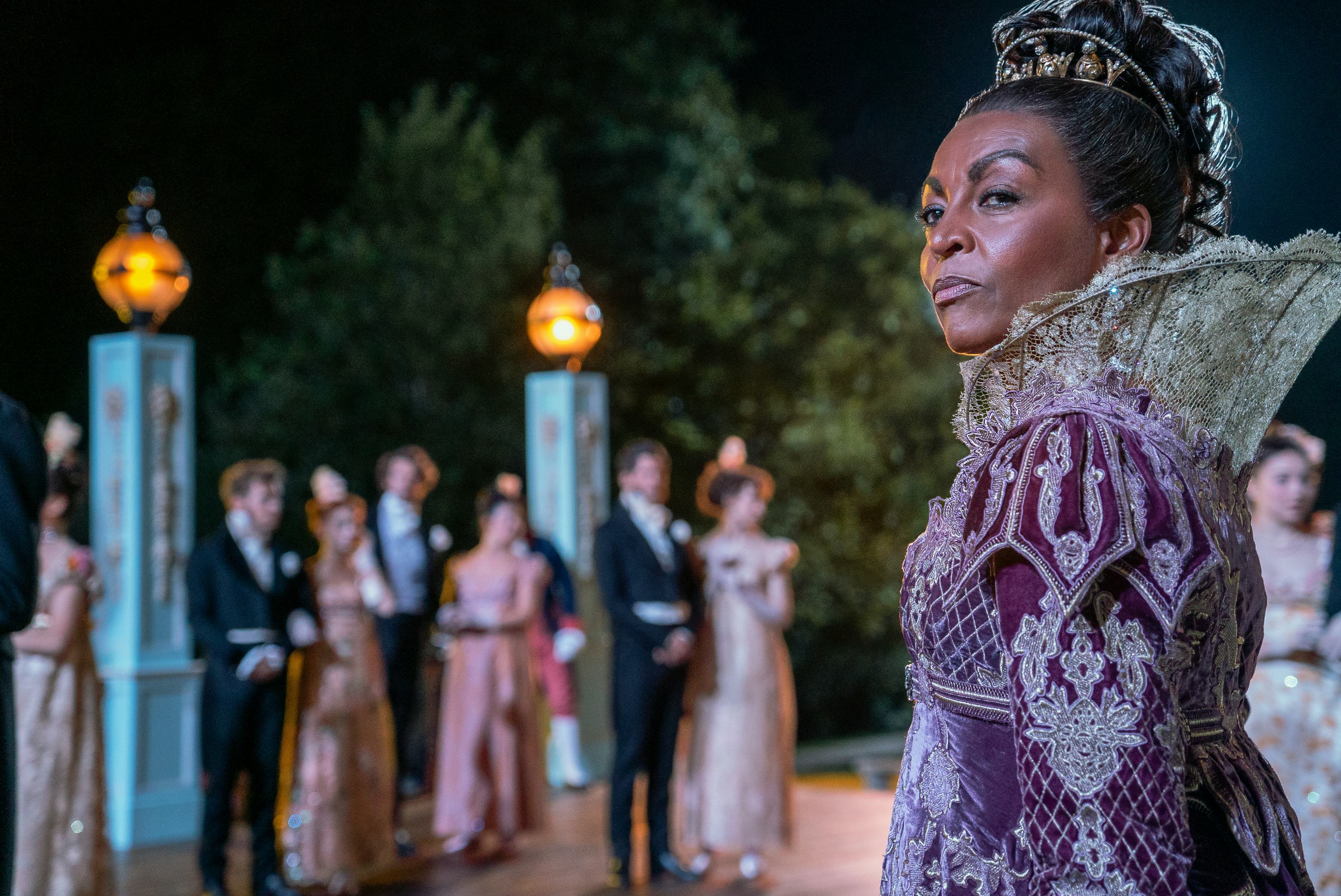
Like many period TV series, Bridgerton grounds itself in the manners and fashions of the period known as "The Regency Era." This decade lasted from 1811 to 1820, the years that George III was alive but ruled mentally incompetent. In his stead, the Prince Regent, the eventual George IV, was in charge, hence the "regency" era. But it’s not just the clothing and social structure that is specific to this decade. There’s an entire set of slang terms that may puzzle fans. The biggest question many have is what is "The Ton" in Bridgerton? Let’s talk vocabulary.
Some of the words become obvious from context clues. When Lady Featherington says Marina has not "had her courses" yet, despite having been in residence for over a month, holding out a pristine white sheet, it’s obvious she’s talking menstruation. The show takes great pains to define "swooning," with an entire conversation between Simon and Daphne over its art. The "modiste" might have been confusing, except Mme. Delacroix literally has it over the door of her dress shop.
But some are less clear: Rake, for example, for a man, might leave fans picturing garden tools. But no, a rake is a gentleman who enjoys seducing women before abandoning them. And then there’s "ton," which, if you don’t have the captions on, you might not even realize is what everyone is saying.
The word "ton" is thrown around a lot in Bridgerton. Daphne is "the talk of the ton," Simon’s single status is "all that the mothers of the ton can gossip about" All of the ton has their eyes on Lady Whistledown’s Society Papers and what she’ll print next.
One would easily assume from these examples, the word is "town," only with a pretentious twist. But "ton," like the slang terms "modiste" and "trousseau," is borrowed from the French and then abridged. The original phrase is "le bon ton," which directly translates to "good form" or "etiquette." In this case, "good etiquette" means "good breeding," aka the upper crust of high society.
"Ton" was the real term used for this society set during the regency era, for those considered intensely class-conscious. Within the ton, there were rigid social hierarchies to observe and a calendar to follow.
The "London season," for instance, was a significant facet of ton life. It ran from the end of January when Parliament reopened until July when it shut down for the summer. Every titled peerage was, at this time, a member of the House of Lords, so they would come en masse into the city to do the business of government. Meanwhile, their wives held balls and parties to network, with an eye towards advantageous marriages for their children within the social set.
Fans can look forward to more of ton life when Bridgerton Season 2 rolls around and a new London season begins.
Source: Read Full Article
